|
User
Reviews 10
Approval 100%
Album Ratings 1025
Objectivity 65%
Last Active 01-20-12 2:25 pm
Joined 04-04-11
Review Comments 37
| My Top Ten Albums Of 2011
2011 was an interesting year both in the world and musically; these are what I thought were the rrten best records of the year. | | 10 | 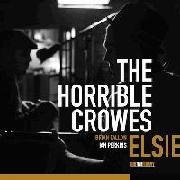 | The Horrible Crowes
Elsie
The Horrible Crowes are Brian Fallon of the Gaslight Anthem's sideproject,
and in some ways having this album on this list is kind of a placeholder for
the fact that no Gaslight Anthem album came out this year. But, this isn't
exactly just more of the same from Fallon, whose work with the Gaslight
Anthem sticks to a scrappy-if-considered form of guitar rock. Elsie, on the
other hand, is a much more varied and cinematic affair, a generally more
tempered, low-key experience, with a pronounced AM-pop feeling and more
funky underlying rhythms. As well, his lyrics play a little less openly
nostalgic and a little more close-to-the-vest here, with nothing like the
grand love declarations of Gaslight songs like "Blue Jeans and White T-
Shirts", and some songs here, like "I Witnessed A Crime" hint at a below-
surface darkness that Fallon hasn't really traded in before. As well, his
singing shows greater range and a more supple edge, with a variety of soul
accents added throughout and an overall more mellow tone. These
elements are both blessing and curse, because while it's certainly very
interesting to hear Fallon experiment with these new tones, one does long
for him to cut loose with a from-the-heart ripper, which never really comes
on Elsie.The best songs here, such as "Behold the Hurricane" and "Go Tell
Everybody", split the difference between sonic detail and energy, sounding
like instrumentally-expanded Gaslight songs, taken down a notch in
intensity. With all that said, though, this is still a very strong record, with
solid songwriting throughout and the controlled slowburn of songs such as
"Sugar" and "Cherry Blossoms" are intoxicating and mysterious, with
arresting smokey jazz-room qualities. This isn't the best work Fallon has
ever done, but even mid-range work by him is still worthy of being on this
list. | | 9 | 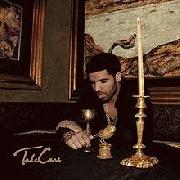 | Drake
Take Care
Drake's ultimate appeal as a rapper can, for me, be summed-up by one line
on "Over My Dead Body", the opening track on Take Care: "I was drinking
at the Palms last night/ and ended up losing everything that I came with".
There's a delicate balance of haughty arrogance ("I was drinking at this
very exclusive, high-end club") and everydude humility ("I lost all my stuff
because I got too drunk") in that line, and those two equal facets extend
throughout this album. For every swaggering, id-pleasing anthem like
"Headlines" (possibly my most-played song of the year) or "We'll Be Fine",
there's a more delicate declaration of confusion or vulnerability such as the
title track or the epic drunk-dial of "Marvin's Room". It's to Drake's credit
that he manages to maintain these two divergent aspects of his personality
in near-Zen harmony throughout Take Care, with neither side quite
winning-out over the other, as well as the fact that both his rapping
abilities (gone is the persistently ragged-on "hashtag flow") and his singing
have markedly improved since his debut album a year ago (which he now
admits was something of a rush job). Drake still isn't particularly clever in
the sense that a lot of rappers are, he doesn't have a lot of quotable
punchlines, for example, but he does manage to pull off the trick of making
saying nothing sound awesome and for being able to wring genuine pathos
out of his material when the mood suits him. He's joined by a few other
voices on Take Care, but aside from Rhianna on the title track, and the
couple songs where The Weeknd's Abel Tesfaye joins in, they don't make
much of an impression; this is Drake's show and he carries it admirably.
Of course, the album's wildly pleasing production is not to be discounted in
making the record great. Soaking up elements of dubstep, quiet storm, R &
B, mainstream rap, electronica, cocktail jazz and pure inspiration (Stevie
Wonder provides harmonica on "Look What You've Done"), the album
creates a varied but enveloping sonic atmosphere, where each song
proceeds logically from the one before it. From the endlessly ramping-up
synth-honk on "Headlines" to the circular guitar figure at the core of
"Underground Kings", there are little sonic moments definitely worth
remembering, but the truly masterful thing about the production on the
album is its use of empty space and minimal texture. "Marvin's Room" is a
little more than a drum thump and an evaporated organ figure, but
anything more would be to take away from the song. Take Care is too long
at eighteen tracks, and has a couple of relative duds towards the end
(also, "Shot For Me" does not get interesting until about halfway through),
but those are forgivable faults in the bigger picture. | | 8 | 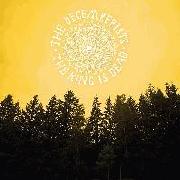 | The Decemberists
The King is Dead
The Hazards of Love, the previous album by the Decemberists, was an
ambitious-but-overthought rock opera, with separate "acts" and
everything, it was a roll of the dice that, while interesting at times, did not
hold together nearly as well as it needed to. Perhaps that relative set-back
convinced the band to drastically scale back for their follow-up, The King is
Dead. While Colin Meloy still does deploy five-dollar words with admirable
frequency, this is a far simpler kind of album, concerned with universal
emotions and strong songwriting as opposed to overarching plots and
sonic innovation. It's somewhat of a retreat into a comfort zone, both for
the band and for indie music in general, but the Decemberists are masters
at this stuff. Working a combination of the country-jangle of early REM, the
heartland sunlight of Americana rock and the literate sensibility of British
folk-rock, the band stick to a fairly limited idiom but come up with big
dividends and relative variety within that. "Don't Carry It All" kicks off the
album perfectly, with a swaying rhythmic figure and the raise-a-glass
chorus, and the band travels through country-ish two-step ("All Arise"),
delicate ballads ("January Hymn") and martial beat rock ("Why We Fight"),
all of it with catchy hooks and polished instrumentation. This stuff isn't
particularly surprising, and it doesn't equal the band's best work, but it is
immensely satisfying in a musical comfort food manner | | 7 |  | Florence and the Machine
Ceremonials
By contrast, there is little about Ceremonials that could be be termed as
possessing restraint or sonic simplicity; this is maximalist, bigger-is-better
music, topped-off by perhaps the strongest voice in contemporary music.
Expanding on the most successful elements of Lungs, her debut album,
Florence Welch delivers a set of heavy-crescendo, explicitly-heart-tugging
songs, backed by strings, keyboards and massively echoing percussion
elements, but what prevents this album from becoming overly sodden or
maudlin is two-fold. Firstly, the musical and lyrical elements here are non-
standard; what Welch is singing about isn't always clear and usually it's a
single phrase that that sticks with you ("it's always darkest before the
dawn", "a sinner like me") more than the overall lyrical content of a
particular song. These aren't love songs, or break-up songs, more
emotional explorations, with exact terms not clearly defined. The musical
content as well, skews slightly off-kilter, from the calypso figure at the
centre of "Shake It Out" to the cathedral organ pulse floating throughout
"Seven Devils", this isn't music that's content to be "standard", and that's a
credit to both Welch and her collaborators. Secondly, I'm entirely confident
that Welch could sing the phone book and make it sound interesting, she
possesses a powerful voice, but crucially knows how to use it for proper
effect, and even when the true vocal fireworks are set off, they always feel
emotionally appropos and not merely technical strutting. This is a record
that prizes the transcendent musical moment, that moment when a song
begins to take a listener away, and though it does become slightly
exhausting by the end, though the formula is occasionally switched-up by
songs such as the more bluesy "Lover to Lover", it's a perfectly well-earned
sort of exhaustion. | | 6 | 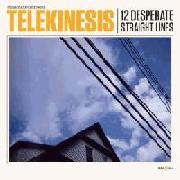 | Telekinesis
12 Desperate Straight Lines
In a way, there's no more appropriate title for this album than the one the
band picked; 12 Desperate Straight Lines consists of, well, twelve fairly
straightforward indie pop-rock songs, albeit given more sonic interest by
some electronica elements which are surprisingly welcome and non-
intrusive, but songs which are fuelled by that source of desperation as old
as music itself: the break-up. Yep, Michael Benjamin Lerner, the heart of
Telekinesis underwent a break-up from his longtime girlfriend, which informs
most of the content here. Now, this formula has been used by many, many
artists from Marvin Gaye to Bob Dylan to Theory of a Deadman (yikes!), with
heavily variable results. While nothing particularly insightful about the
subject of human relations comes up over the course of the twelve tracks
(not to say anything particularly negative about the lyrics, they're simply
standard-issue), the emotional engine clearly provided by the personal
turmoil has sparked something in Lerner and has caused him to write a set
of very engaging and melodic songs. I was lukewarm on Telekinesis's self-
titled debut, mostly because it felt like warmed-over late-90's indie, but
here the songwriting is a lot stronger and Death Cab for Cutie's Chris Walla
has stepped-up to the production plate, and he really helps this thing pop.
It's the little things, like the trilling electronic cymbal hit on "Please Ask for
Help" or the backing-vocals "woah-woahs" on "Car Crash", that make this
record stand out from that perspective. In addition, Lerner really knows
how to play with a fairly unvaried sonic palette (crunchy and clean guitars,
minimal electronic elements, his reedy voice) to create maximum hookiness,
whether it's the bobbing vocal melody on "Clear in the Sun" or the echoing
guitar on "Fever Chill". This isn't groundbreaking stuff, but it fulfils its
chosen idiom extremely-well, with the added bonus of emotional
investment often lacking from this sort of music. | | 5 | 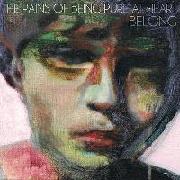 | The Pains of Being Pure at Heart
Belong
The first three tracks on Belong, the title track, "Heaven's Gonna Happen
Now", "Heart in Your Heartbreak", form perhaps the strongest run of
individual tracks of the Pains' career and of any album this year, all three
tracks glowing pop nuggets with lovely slacker hookiness and shoegaze
guitar crunch. Belong represents a fairly large departure from the band's
previous work, which fell into a sort of standard scuzzy lo-fi pop template,
albeit a quite well-done form thereof; Belong is anything but lo-fi, as the
band has enlisted producer Flood, famous for work with artists ranging
from Nine Inch Nails to U2, to provide consummate polish and deep
instrumental layering to their upbeat indie-pop. That choice of producer is
really important because the album is definitely in the conscious mould of
many great albums of the 90's such as The Smashing Pumpkin's Siamese
Dream and My Bloody Valentine's Loveless, albums that luxuriate in fat,
fuzzy guitar tones and heavy low-end with vocals pulsing deep in the mix
and the lyrics rendered more as an element of the overall sound than
clearly-defined messages. Though the rest of the album doesn't live up to
the promise of that opening three track run, and thus Belong doesn't equal
the albums it is clearly inspired by, it is still the rest purely pleasurable
album, with the singalong, casual hooks of "Too Tough" being emblematic
of the kind of songwriting on display here. The band does nudge slightly
out of their comfort zone on the tripped-out shimmer of "Strange" and the
semi-metal roar of "Girl of 1,000 Dreams", and these songs point towards
greater sonic expansion in the future, but for now the Pains' near-mastery
of a simple, highly-pleasurable form with deeply-pleasing production to
match is something to be celebrated. | | 4 |  | The Rural Alberta Advantage
Departing
Hometowns, the Rural Alberta Advantage's debut, was possibly my
favourite album of 2008, and Departing is something of a prototypical
"difficult second album" in comparison; it's a darker work, with a more
pessimistic emotional palette, even though it uses or recontextualizes many
of the elements of their debut. It took some time for me to get into this
album and fully appreciate it, and I think it was the onset of late fall and
winter, Departing is a "cold" album in a lot of regards and it sounds a lot
better when walking around downtown Ottawa trying not too freeze, its
tales of lost loves and lonely nights resonating with a clear-eyed weight
that the album didn't seem to possess at the time of its release date. It's
certainly going for a certain vibe with gusto, and to its credit it handily
accomplishes its goals, even if it can seem monochromatic at times. Songs
like "Two Lovers" betray a kind of beaten-down outlook reinforced by the
weary guitar strum that underpins it, while the more uptempo tracks such
as "Stamp" rush with dark purpose provided by storming percussion. The
invigorating stomp of "Barnes' Yard" does provide a respite from the
sadness elsewhere, while album closer "Good Night" provides a well-
earned warm embrace of a denouement, but for the most part this is a
melancholy, deeply-felt work that remains engaging due to its strong
embrace of tone and its varied instrumental work. | | 3 | 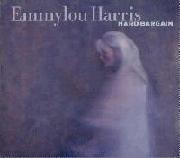 | Emmylou Harris
Hard Bargain
Country legend Emmylou Harris has been on something of a late-carrer
renaissance, beginning with the Stumble into Grace album in 2003, and
continuing with All I Intended to Be in 2007, but unlike a lot of other classic
musicians who have come back into the public eye in recent years, and are
often pushed into merely performing their old hits and material that is
consciously intending to mimic the same, Harris' comback has been on her
terms. Her recent albums are only really "country" in the sense that they
use mostly acoustic instrumentation and have twangy guitar tones, Harris
hasn't embraced any of the trends of contemporary Nashville and her
delicate-but-powerful singing resonates more as folk if anything in the
modern sense.
Hard Bargain is perhaps the best of her modern period,
mostly for reasons that have to do with refinement of formula than
anything else. Harris is still singing with gusto and tailoring her voice to the
songs at hand, whether bobbing along with "Home Sweet Home" or
smoothly grooving on "Six White Cadillacs" and she's back to writing most
of her own material here (only the title track and album closer "Cross
Yourself" are covers). Harris both writes and sings from a perspective of
wisened age, her voice on occasional slightly cracking when reaching for
high-notes, but projecting deep authority and worldliness. It's precisely
these qualities that allow her to sing about homlessness ("Home Sweet
Home"), racism ("My Name Is Emmett Till"), and natural disaster ("New
Orleans") without sounding preachy or overly sentimental, and it's what
gives her love ballads ("The Ship on His Arm", "Lonely Girl") a hard-won,
considered character lacking in younger artists. The deeply personal
material on the album, "Darlin' Kate", a tribute to a recently-deceased
musical collaborator and song-of-the-year "The Road", about Harris'
friendship with Gram Parsons, are some of the strongest material Harris
has written in her long career and showcase a risky emotional nakedness
that she pulls off without missing a step. Notable as well here is the
expanded musical palette, which is rooted in a sort of tasteful, polished
British folk-rock sensibility but incorporates widescreen expansive
soundscape ("The Road"), mellow country ("Home Sweet Home"), darker
bass tones ("My Name Is Emmett Till"), winking organ work ("Big Black
Dog") and early rock and roll ("Six White Cadillacs").
It's hard to say if this relative adventurousness is mostly attributable to the album's producer Jay
Joyce, or whether it is more Harris herself, but in either case it provides
interesting new angles for her always-sturdy songwriting. Hard Bargain is
the sort of album that doesn't come out much any more: a deeply-felt,
keenly-worded set of songs that focuses on images and emotions both
universal and personal, with the kind of vocal and songwriting to match it;
Harris is an old-pro, and she's brilliant as ever here. | | 2 |  | PJ Harvey
Let England Shake
Let England Shake gets a lot of instant points from the history nerd in me
for its Great War inspired subject matter and thematic thrust, and its
deeply "English" perspective, but that stuff only goes so far and
furthermore if it didn't succeed it would look like a particularly pretentious
dud at that. Thankfully, then, PJ Harvey's newest album is both thematically
taut and musically impressive. The manner in which the album addresses
war is, for the most part, in an imagistic way that makes clear the tragic
consequences of human conflict without coming off as a bumper sticker
slogan; Harvey sketches evocative portraits of people and situations from a
shell-shocked frontline soldier ("The Words That Maketh Murder") to a
mourning compatriot ("Colour of the Earth") with a delicate hand and a feel
for the poetic (a personal favourite: "the Thames River glistening like gold,
hastily sold, for nothing", from "The Last Living Rose"), playing narrator in
her more detached, high-toned singing style for the most part, but
occasionally taking a more ground-level perspective, all of which adds to a
singular thematic thrust.
What's most impressive about this overall cohesiveness is that it is maintained despite the vast musical
variety covered over the course of the album. While Let England Shake does
posses a broad mood of antiquity and restraint that is maintained
throughout, individual songs range from xylophone-assisted shuffle (the
title track), to glassy indie-rock ("The Glorious Land") to theatrical ballads
("On Battleship Hill"), with a particular emphasis on unusual
instrumentation (yes, that is a bugle call on "The Glorious Land") and
prominent percussion, as well as use of the autoharp. While some of these
elements, as well as Harvey's emphasis on her higher vocal pitches, were
present on White Chalk, her previous album, that album felt somewhat
unsure of itself, whereas Let England Shake feels fully-formed; the album's
thematic construct perhaps provided Harvey with something of a scaffold to
build upon.
Another deeply idiosyncratic part of the album is the way in
which is grabs parts of old songs an recontextualizes them, not unlike a
clever rap producer might. "Let England Shake" borrows the underlying
rhythm of the swing song "Istanbul (Not Constantinople)" and builds a
death-knell for British world hegemony around it, "The Words That Maketh
Murder" uses the "what if I take my problem to the United Nations" line
from Eddie Cochran's 50's classic "Summertime Blues" to lament the lack of
non-lethal dispute mechanisms between nations and "Written on the
Forehead" uses a piece of the reggae song "Blood and Fire" to craft a
tableau of the modern Middle East. That kind of stuff is the sort of thing
that either comes out looking brilliant or terrible, like much of the album,
and it's to Harvey's immense credit that she pulls this high-wire act of an
album off. | | 1 |  | Bon Iver
Bon Iver, Bon Iver
I struggled with the exact placement of most of the albums on this list, but
from the start of my making of it, there was no question in my mind that
this self-titled sophomore album from Justin Vernon (aka Bon Iver) would be
topping my list, if only on the pure basis of the fact that it is album that I've
listened to front-to-back the most out any released this year. As I began to
think about reasons for this more deeply, however, I came to the
realization that a lot of what makes this album so brilliant to me is perhaps
down to feeling and mood, the pure joy certain sounds give to me, and the
general, eyes-closed, soaking-it-all-in experience that album creates. With
that said, there is still a lot to talk about it here, and it begins with
mentioning how much of a leap forward the album is as compared to For
Emma, Forever Ago, the band's 2008 debut.
That debut, while very good in
its own right essentially followed a sensitive-guy-with-a-guitar formula
(albeit a very well-crafted, idiosyncratic form thereof) and had the kind of
melancholy backstory to match it, and while the stopgap Blood Bank EP did
somewhat hint at the more expansive sound heard on Bon Iver, it did not
prepare Vernon's fans for what he had in store. From the the warm, spindly
guitar line and martial drumbeat that opens "Perth", one knows that this
won't be a minimalistic, stripped-down affair. The instrumental palette built
over the course of the album's ten tracks ranges from delicate folk that
includes a tasteful electronic beat ("Holocene") to skipping, country-ish
sway ("Towers") to synth-heavy slowburn ("Calgary"), but remains
engaging, enveloping and logically contiguous throughout. As cliche as it
may be to say this, the tracks here do truly flow logically into one another,
adding up to the album creating a overall wash of sounds and songs that is
at once a set of carefully-crafted melodies and a perfectly-blended single
whole. At the core of all the songs remains Vernon's delicate, soulful voice
which is surely one of the best in the current world of independent music.
In terms of what, exactly, he's singing about, it's not always especially
clear, both from his vocals and the lyric sheet ("In a matter of a month/from
forests, for the soft/gotta know been lead aloft" reads a typical passage),
but the lyrics always do manage to resonate emotionally even when they
don't make logical sense, and often he seizes on a particularly evocative bit
of imagery or ambiguous repeated phrase ("I could see for miles, miles,
miles", "I was not magnificant") in the way a free verse poet might.
The truly great thing, though, about Bon Iver is perhaps summed-up by its final track
"Beth/Rest", a keyboard-and-sax-heavy ballad that evokes nothing so
much as 80's soft rock: Vernon is willing to take chances with deeply
"uncool" sounds and elements here, and he comes out winning in all cases.
"Beth/Rest" is a surprising move, but it's a great song and makes a brilliant
argument for the musical worthiness of even the most denigrated styles.
Bon Iver, ultimately, is at the top of this list because of risks like that,
because of its expansive musical vocabulary, because of Vernon's
wonderful voice, but most of all because it creates a feeling of total and
whole satisfaction to a degree that no other album did for me this year. | |
klap
12.18.11 | telekinesis, nice | Deviant.
12.18.11 | Hey this looks familiar. Oh yeah that's right: I only saw it being posted 3 times in the 2011 submission thread | jdennis31
12.18.11 | seem to be seeing a lot of first place bon ivers. used to think the genereal consensous was that it was a huge disappointment | CarterVance
12.18.11 | Yeah, I meant to go and delete those, whoops. | Deviant.
12.18.11 | You can't but don't worry about it, it's all been sorted. Protip for the future: you can just edit your forum comments instead of re-posting them with any errors fixed | jayfatha
12.18.11 | Holy wall of text batman | CarterVance
12.18.11 | Okay, thanks, in the future I will, I wasn't sure if my entries would properly process if I didn't
make a separate new post. | Irving
12.18.11 | No lobbying needed ;) | theacademy
12.18.11 | look at all that text | mvood
12.18.11 | nice, ill check out what I don't have | gabethepiratesquid
12.18.11 | I love you, OP.
Great list. You eloquently explained your love for all of the albums. | luschlotz
12.19.11 | Props for 2, thats definately my aoty. Im inmediatly downloading the albums I didnt know off this list (3,4 and 6)
Thanks for the effort | lobby
12.19.11 | A delicate calculation of karma: ten reviews or one featured list... | Satellite
12.19.11 | so many words | AtavanHalen
12.19.11 | Soooooo many. I love your enthusiasm. | CaptWaffles
12.19.11 | ahh how could I forget The Horrible Crowes??? brb gotta fix my list | CarterVance
12.20.11 | In fact, much more can be said. :P
Thanks for the kind words everyone!
| BikeInPond
12.20.11 | typical | parksungjoon
04.16.22 | https://www.sputnikmusic.com/images/members/502664.jpg |
|
